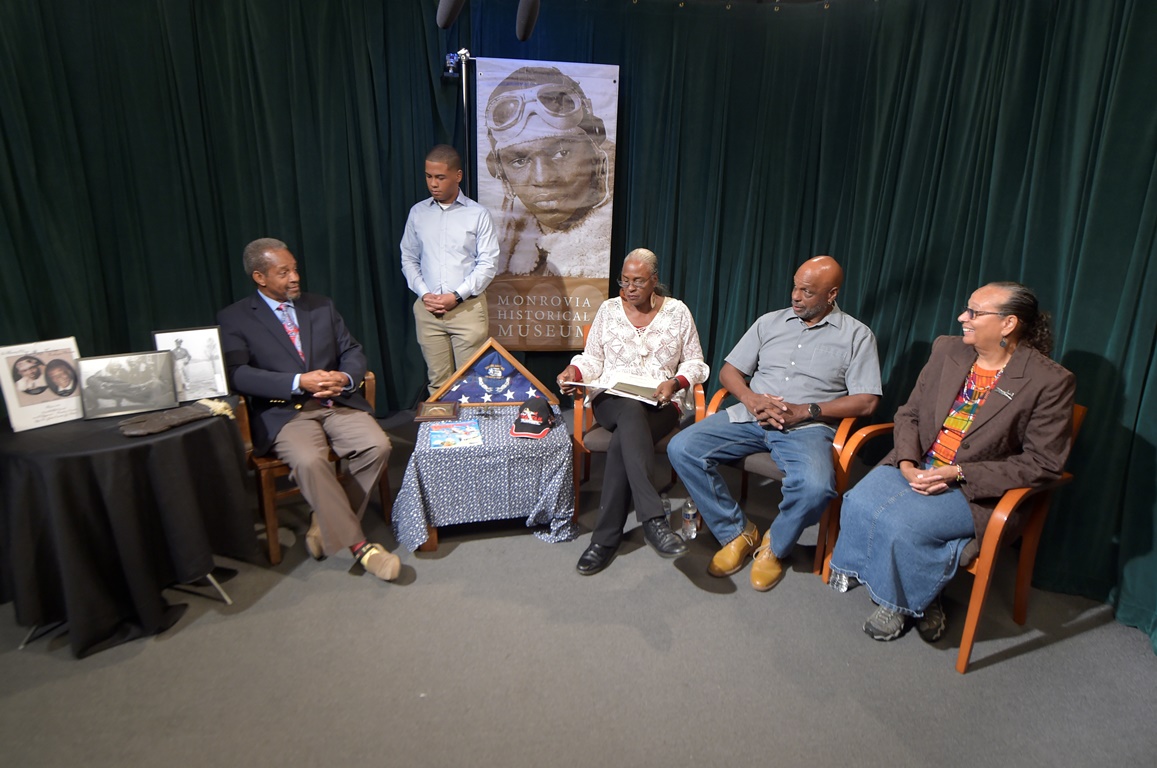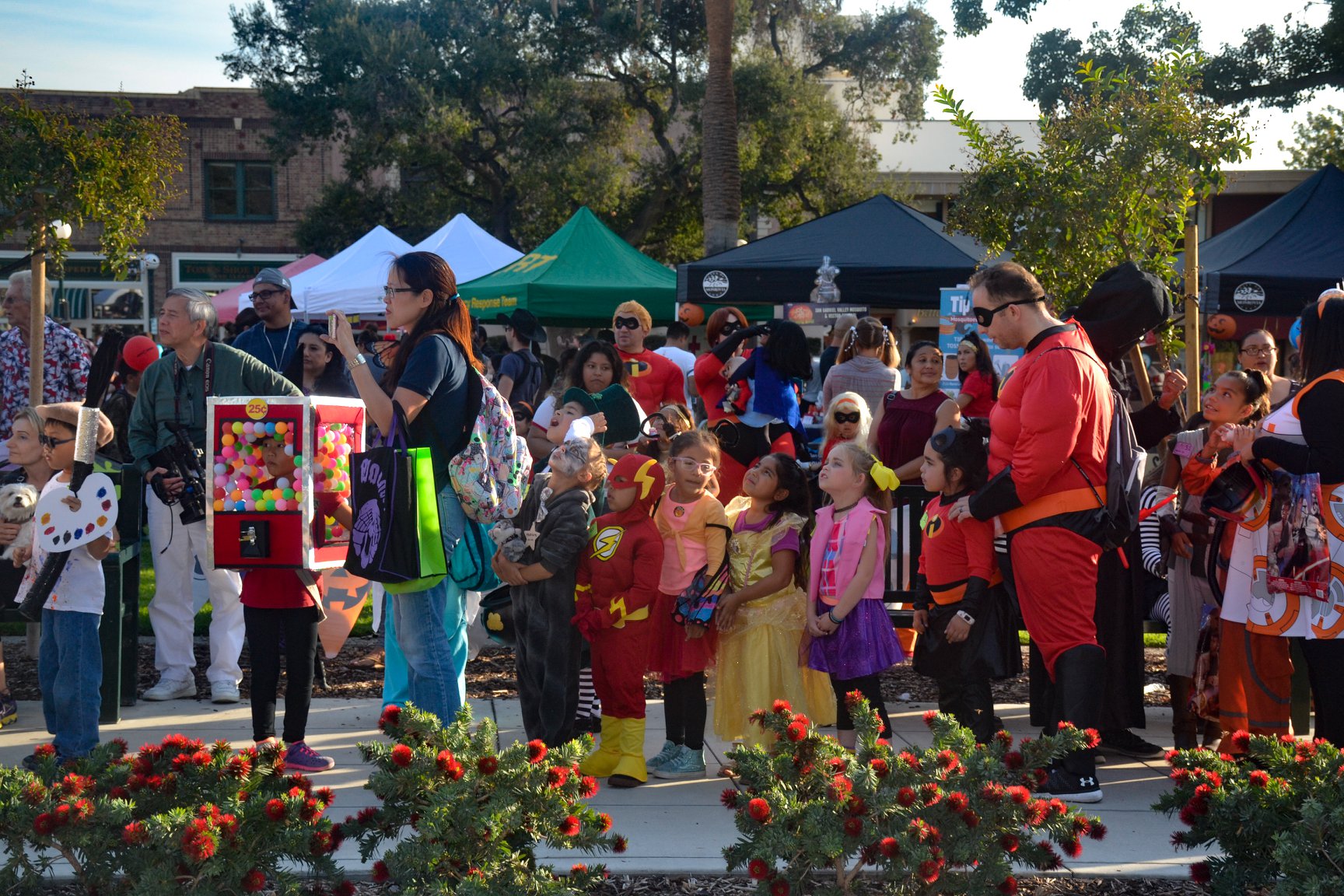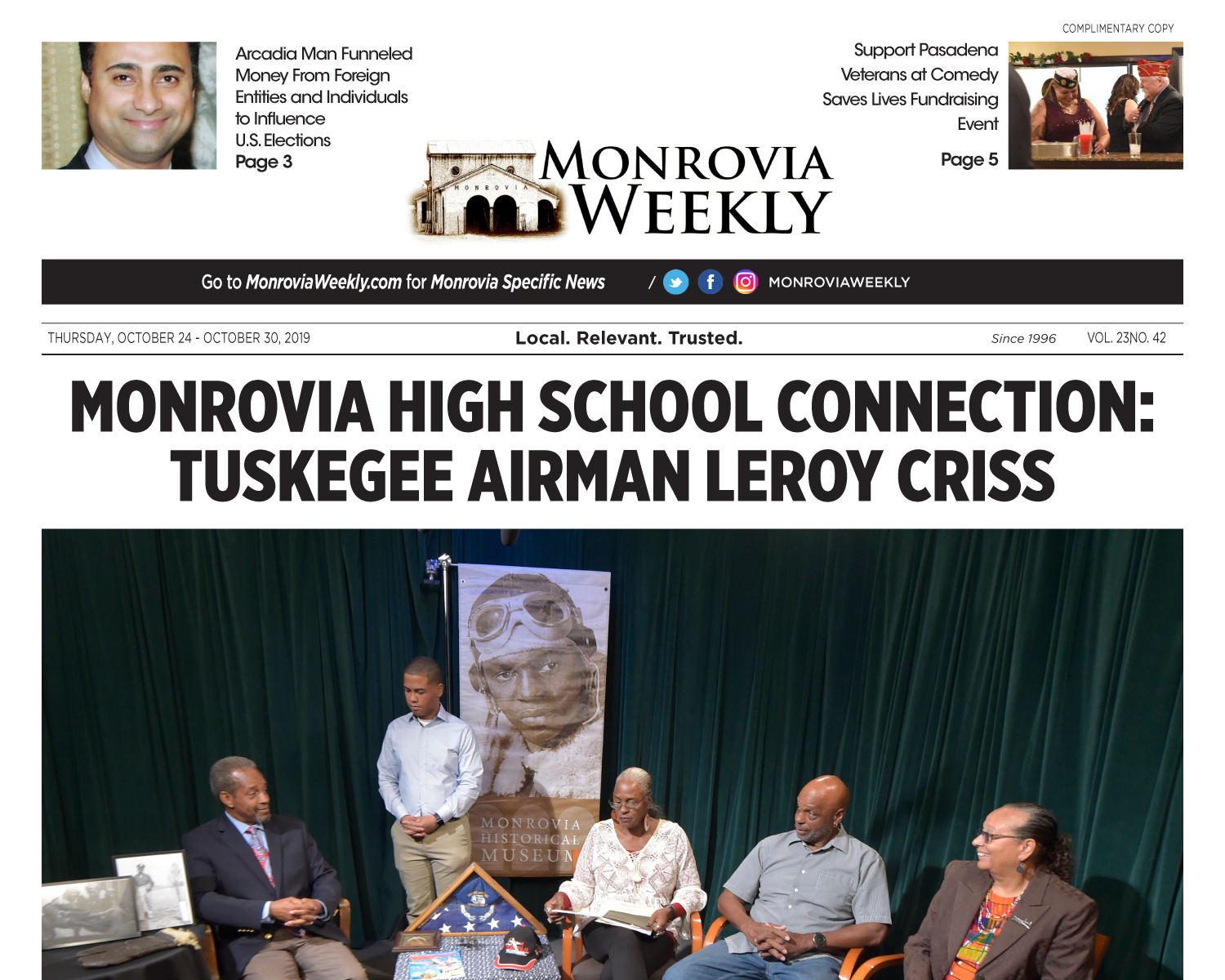By Terry Miller
During World War II, the Civil Aeronautics Authority selected 13 black cadets to become part of an experimental program at the Tuskegee Institute in Alabama.
It has been over seven decades since the legendary Tuskegee Airmen fought their first battle in the skies over North Africa.
These brave men were known then as “Redtails”‒ America’s first black combat pilots.
All African American military pilots who trained in the United States during World War II were educated in Tuskegee, Alabama. In all, almost a thousand pilots trained there from 1941 to 1946. Of that number, 450 were deployed overseas and 150 lost their lives, including 66 killed in action.
On Monday, the legendary Ralph Walker hosted an interview at KGEM studios with family members of the late Tuskegee pilot LeRoy Criss.
The family members traveled from San Diego and Orange County to be part of Walker’s ongoing and important history series which will be aired soon on the Community Media of the Foothills station locally.
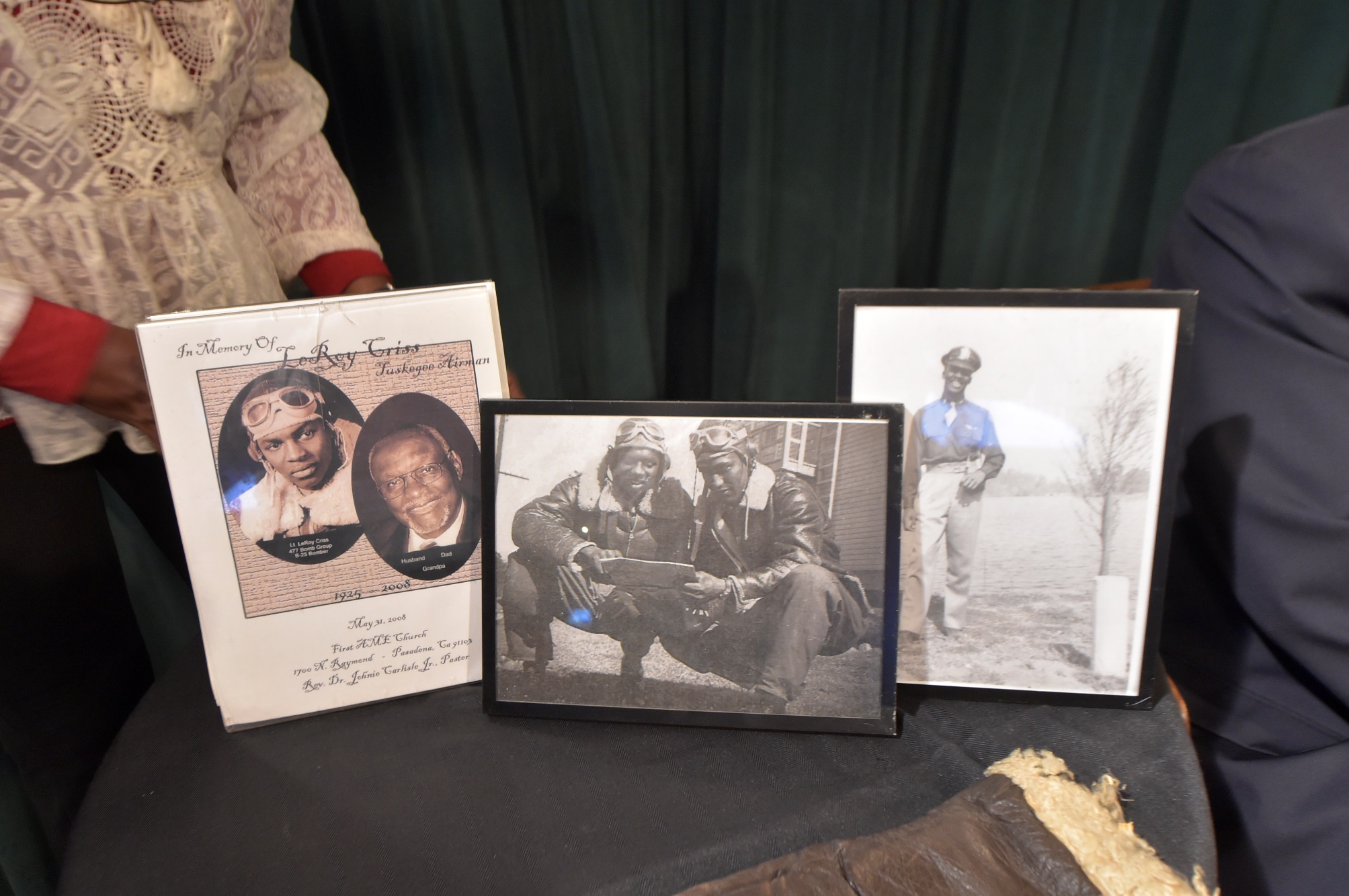
On Monday morning, the studio set was decorated with memorabilia the family has collected over the years as Walker discussed the extraordinary role the late LeRoy Criss played in not only the history of the United States but also that of Monrovia.
One young Monrovia High student, Tyler Spicer, 18, was deeply moved by a recent Black History lecture by Ralph Walker which was part of the February curriculum. Spicer was instrumental in getting a plaque devoted to Criss created and is currently in the process of choosing the best placement on school grounds to honor Criss.
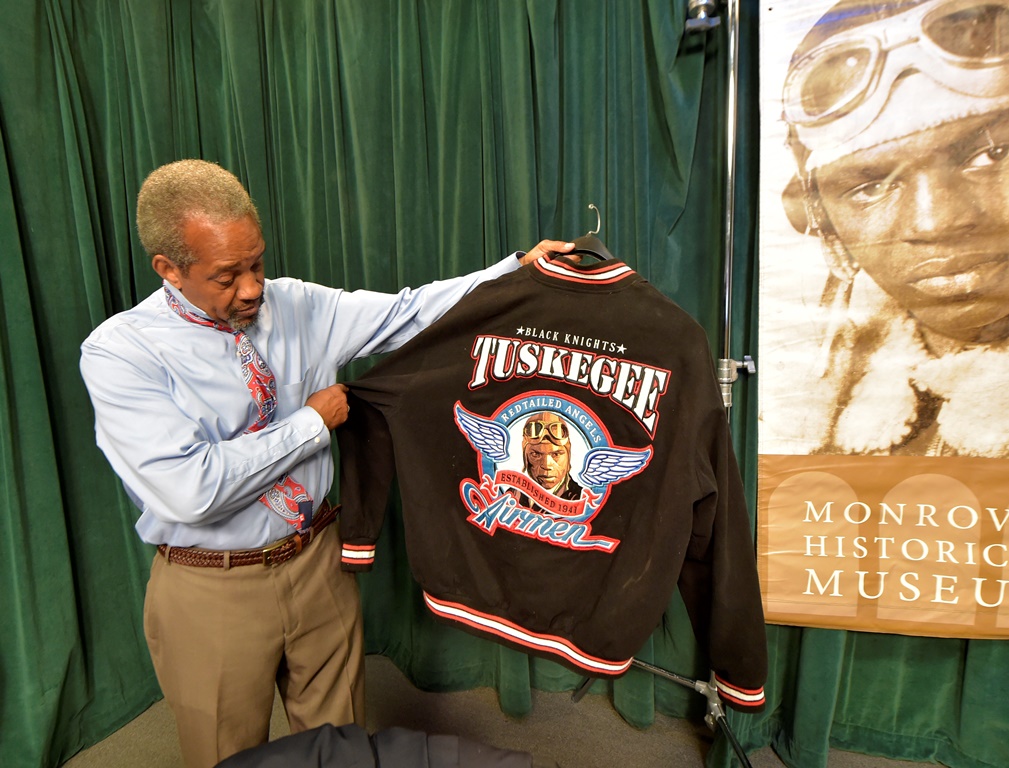
An exhibit honoring the Tuskegee Airmen from Monrovia was on display at the museum in time for the release of “Red Tails,” an action movie depicting the famous African American World War II pilots, released in 2012.
Criss passed away on May 20, 2008. Criss was not only one of the original Tuskegee Airmen pilots; he also spent 37 years as a high school teacher. Regrettably, Monrovia wasn’t hiring African American educators at that time in history so he immediately got a postwar position at a Los Angeles high school and Fairfax.
The Tuskegee program aimed at training “colored personnel” to become fighter pilots for the Army. However, discrimination, lack of institutional support and racist beliefs that these men lacked the intelligence and aptitude for the job dogged their every step, according to the film’s producer, George Lucas.
The Tuskegee Airmen were the first African American military aviators in the United States Armed Forces. During World War II, black Americans in many U.S. states were still subject to Jim Crow laws and the American military was racially segregated, as was much of the federal government. The Tuskegee Airmen were subjected to discrimination, both within and outside the army.
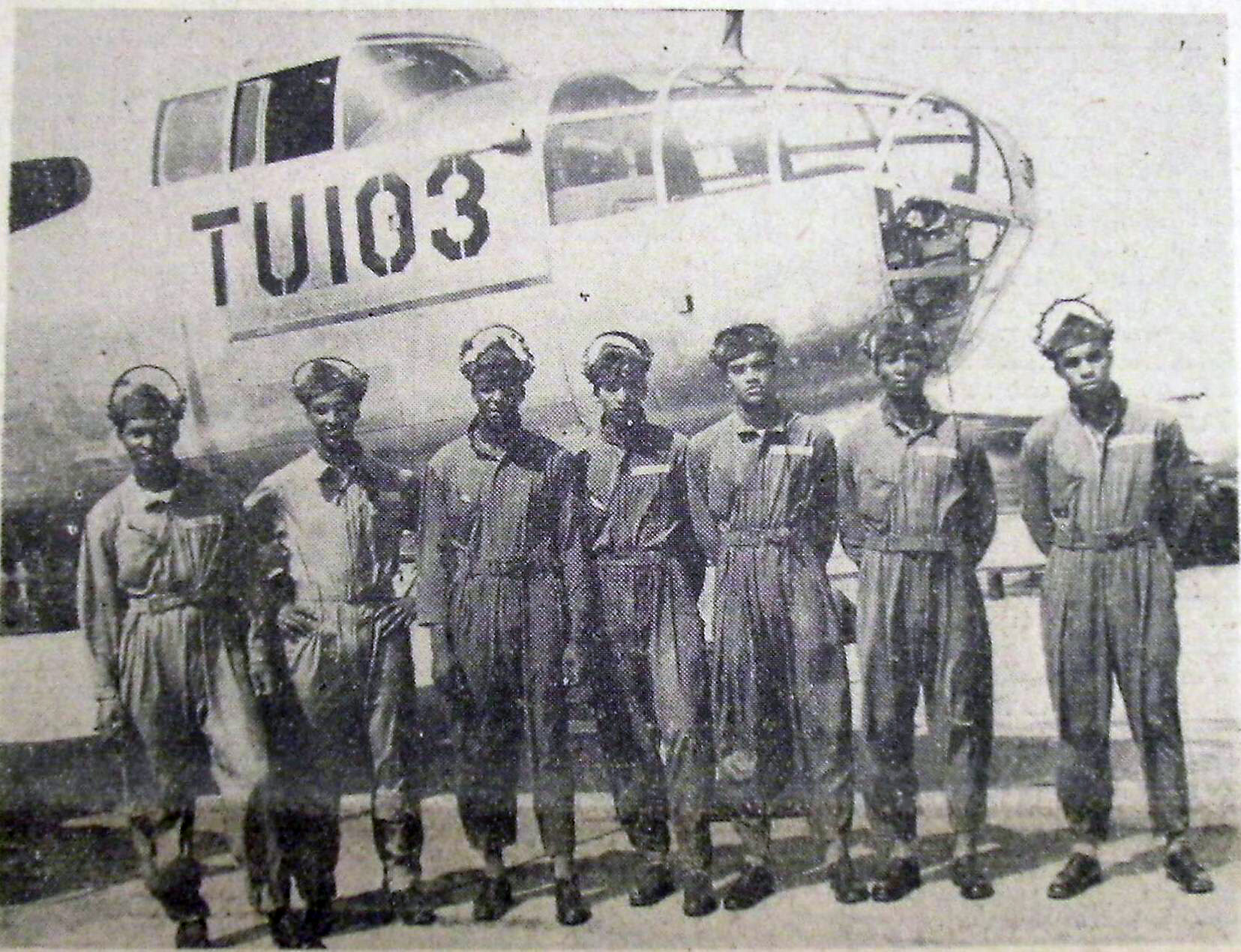
Despite the rampant racism, Criss flew with the legendary Tuskegee Airmen from 1943 to 1946 and learned to operate numerous aircraft, including the B-25 Mitchell Bomber.
Known as “Buster,” Criss attended Monrovia Arcadia Duarte High School and spent 27 years teaching English, math, history and special education when he finished serving in the military. He also spent 30 years as the co-director of Outward Bound Adventures, a nonprofit organization that provides wilderness excursions for inner-city youth.
Col. Charles E. McGee, national president of the Tuskegee Airmen once said of the Tuskegee Airmen: “The Tuskegee story is an important civil rights story of Americans who happen to be black, in service to their country, their family, and to their friends — in that order.”

